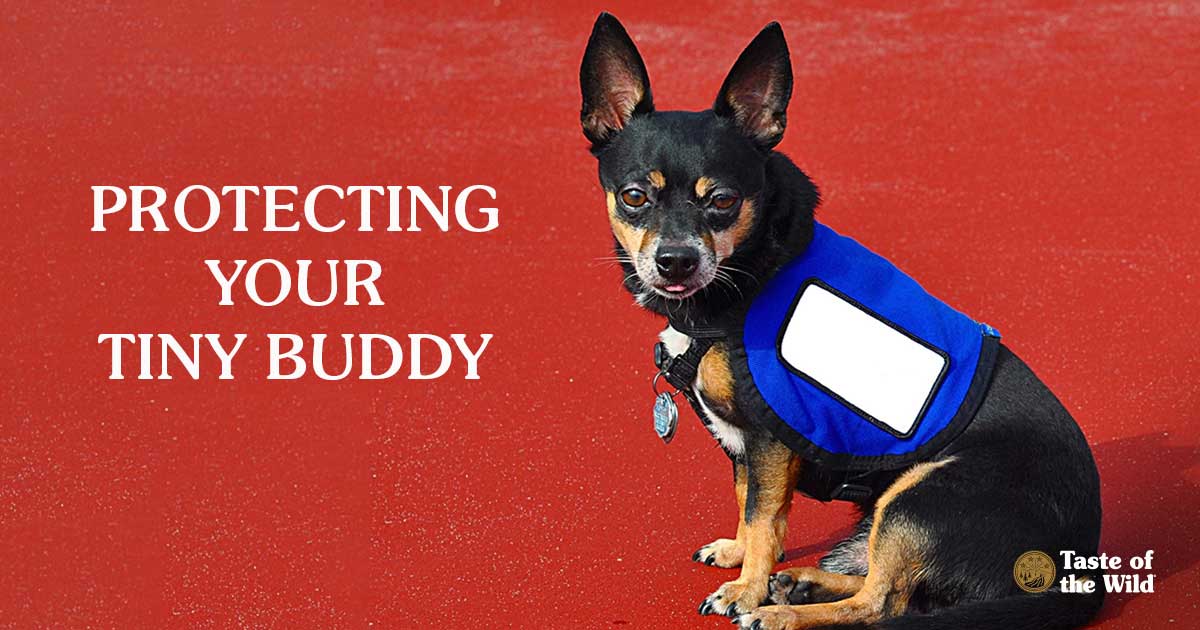
They’re cute. They’re cuddly. And they’re somewhat breakable. If you’re planning on adopting a small breed, be ready to take on some unique challenges. Due to their stature, smaller breed dogs face challenges that many larger breeds avoid. Here’s how to keep your little fluff ball safe.
Hold On
Your dog may think that jumping from your arms is a good idea, but it might not be the best for their little legs. According to DogVacay, veterinarians report that some of the most serious traumatic injuries seen in toy breeds result from the dog leaping or tumbling out of their owner’s arms. If you find yourself constantly carrying around your pup, try some sort of carrier to keep your dog from wiggling out of your arms.
Strap Them In
When it comes to taking a walk with your pup, it’s better to be safe than sorry! DogVacay recommends using a body harness instead of a neck collar. Due to their delicate necks and easy-to-injure tracheas, a body harness avoids putting any unnecessary tension on that area.
Cozy Sweater Weather
When cold weather rears its ugly head, it’s time to bring out those sweaters. Small breeds are more susceptible to cold weather since they lose body heat faster than larger breeds.
Doggy-Proof That House
Whether you’re dealing with a puppy or a standard small breed dog, doggy-proofing your house is an excellent way to avoid dangerous situations. Here are a few precautions that all small breed pet parents can take:
- Find and move any objects that may pose a danger to your dog.
- Move any valuable and breakable objects from your dog’s reach.
- Hide or cover electrical wires.
- Keep small pets out of reach.
- Shut the toilet lid when you’re not using it.
- Secure ground-level cabinet doors.
- Keep candles out of reach.
- Place trash bins behind closed doors.
- Fill in holes around fences or easy-to-escape areas. (Note: Chicken wire works great for this!)
Putting Their Health First
Not all foods are made alike and some are more beneficial to small breeds than others. When searching for a pet food that works with your dog, look for a highly digestible protein that’s easy on their teeth and tummy. Small kibble size is perfect for your little pup’s system.
Small But Capable
It’s easy to feel overly protective of your small dog, but know that they’re more capable than you may think. All dogs should be socialized and taught how to do the basics like climbing stairs and moving on all types of terrain.
Feel free to challenge your pup and try hiking and swimming. As you’re introducing them to new situations, be sure to ease them into it and look into classes to see if it’s the best fit for you and your pooch.
RELATED POST: Everything You Need to Know About Nutrition for Small Breed Dogs
The information in this blog has been developed with our veterinarian and is designed to help educate pet parents. If you have questions or concerns about your pet's health or nutrition, please talk with your veterinarian.
